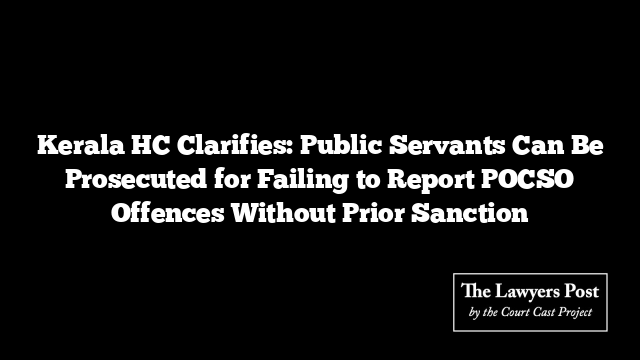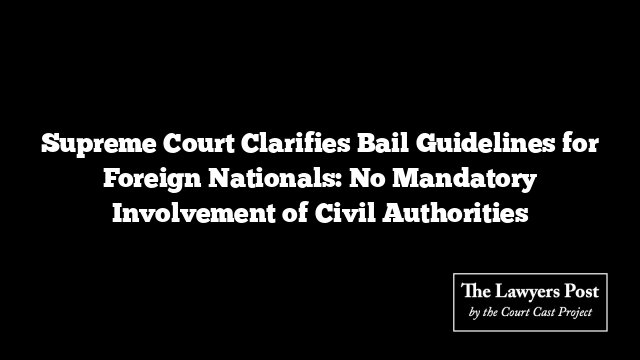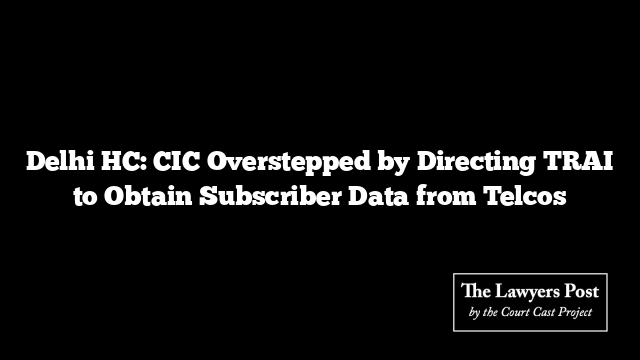In a significant ruling, the Kerala High Court has determined that public servants can be prosecuted for failing to report offences under the Protection of Children from Sexual Offences (POCSO) Act without requiring prior government sanction. The Court clarified that this obligation applies to everyone in their private capacity, irrespective of their official role.
Justice K Babu, presiding over the case, emphasized that Section 19 of the POCSO Act mandates reporting of such offences, making it a duty performed in an individual’s private capacity rather than as part of their official responsibilities. Consequently, the safeguards provided under Section 197 of the Code of Criminal Procedure (CrPC) and Section 218 of the Bharatiya Nagarik Suraksha Sanhita (BNSS) do not shield public servants from prosecution in cases of non-reporting under the POCSO Act.
“Section 19 of the POCSO Act imposes an unambiguous duty on individuals to report offences, independent of their professional character,” observed the Court.
The judgment arose from a petition filed by a former Chairman of the Child Welfare Committee (CWC) in Thrissur, seeking to quash criminal proceedings against him for allegedly failing to report a sexual assault on a minor. The petitioner argued that he had informed the police the day after the incident came to his notice and claimed that his status as a public servant necessitated prior sanction for prosecution.
Rejecting these claims, the Court highlighted that legislative intent does not extend the protections under Sections 197 of the CrPC and 218 of the BNSS to POCSO-related offences. “The lex posteriori rule demonstrates that Parliament deliberately excluded these protections in the context of Section 19 read with Section 21 of the POCSO Act,” the Court noted.
However, considering the material evidence showing that the petitioner had reported the incident promptly, the Court quashed the proceedings against him.
Before concluding, the Court criticized the police for revealing the identity of the minor victim in the final report, a clear violation of legal provisions safeguarding the anonymity of victims under the POCSO Act. The Court directed the State Police Chief to ensure stricter compliance with these provisions to protect victims’ rights.
This ruling underscores the universal responsibility to act against crimes under the POCSO Act, transcending professional roles and requiring accountability at an individual level.





